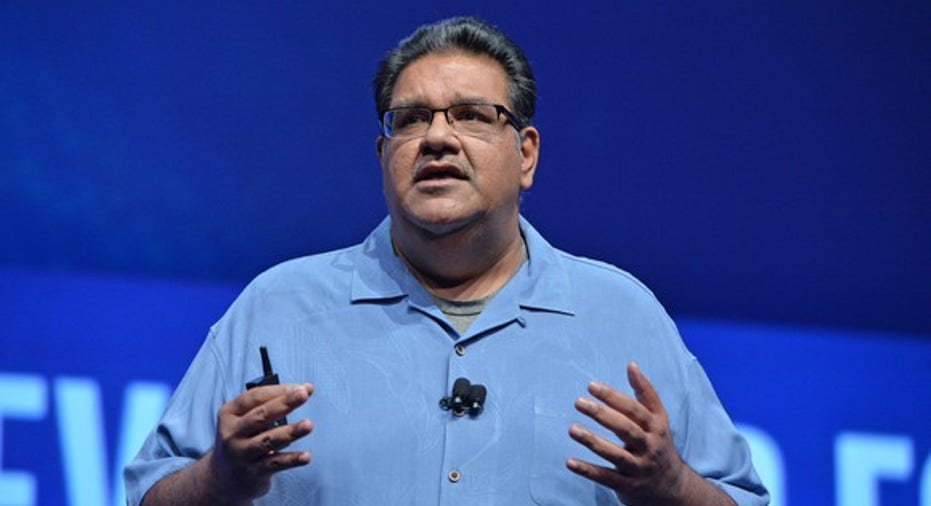Intel Corporation's Murthy Renduchintala Hints at New Mobile Strategy

Earlier this year, microprocessor giant Intel (NASDAQ: INTC) confirmed that it effectively cancelled every upcoming mobile processor that it had previously talked about. Broxton for high-end smartphones and tablets, and the SoFIA line of integrated applications processors and modems were both cancelled.
Murthy Renduchintala. Image source: Intel.
The cancellation of these products made it appear that Intel was out of the mobile applications processor game for good, content to cede this large unit opportunity to other chipmakers after years of trying to break into it.
However, over the last several months, several Intel executives have gone on record to state that the company still intends to participate in this market.
At a recent investor conference, Intel executive Murthy Renduchintala offered some insight into those product cancellations as well as into the company's plans to, once again, become a player in the mobile applications processor space.
Why all those chips got cancelled
Renduchintala said that he and the rest of the management team spent 2016 identifying projects that "weren't going to hit the target opportunities that they were originally mandated for" and "decided to foreclose on some of those investments."
"That doesn't mean that we should conclude that we've strategically withdrawn from those spaces or those areas," Renduchintala clarified. "I think those products weren't competitive."
This line of thinking is quite sensible -- why continue to spend precious financial and human resources on products that potential customers aren't going to buy?
Mobile still important
Renduchintala went on to assert that connectivity technologies, such as 5G and Wi-Fi, are "going to be absolutely fundamental to many areas of our business."
Indeed, Intel is a successful vendor of Wi-Fi connectivity chipsets for personal computers, and its cellular modems are used in some versions of theiPhone 7 series of smartphones. Intel has also indicated in the past that it expects a significant portion of notebooks to ship with cellular modems integrated.
That said, even though Intel expects these connectivity technologies to be important even outside of smartphones, Renduchintala asserted that mobile applications processors "still represent an interesting opportunity."
He points out that many of the key intellectual properties, or IPs, that go into smartphone processors are also applicable to many of Intel's other businesses.
"I think what we need to do is make sure we get our execution and our competitive focus really sharpened and make sure that we have products that are really appropriate for the competitive environment going forward," Renduchintala said.
Don't hold your breath, but...
Given Intel's troubled history in the mobile processor space, I wouldn't get too excited about Intel's prospects -- yet. Intel has disappointed investors here before, burning billions of dollars in operating expenses and "contra-revenue" for no real payoff.
Additionally, Intel's competitors in this market are exceptionally tough. They move quickly, have very broad and deep product portfolios, and have the deep customer relationships with the small and large smartphone vendors to get their chips designed into smartphones that people want to buy.
It's just a tough business for any company, especially one without a history of success, to break into. Keep an eye on Intel's efforts here, but until the company is shipping significant quantities of chips for (profitable) revenue, don't get your hopes too high.
10 stocks we like better than Intel When investing geniuses David and Tom Gardner have a stock tip, it can pay to listen. After all, the newsletter they have run for over a decade, Motley Fool Stock Advisor, has tripled the market.*
David and Tom just revealed what they believe are the 10 best stocks for investors to buy right now... and Intel wasn't one of them! That's right -- they think these 10 stocks are even better buys.
Click here to learn about these picks!
*Stock Advisor returns as of Nov. 7, 2016
Ashraf Eassa owns shares of Intel. The Motley Fool recommends Intel. Try any of our Foolish newsletter services free for 30 days. We Fools may not all hold the same opinions, but we all believe that considering a diverse range of insights makes us better investors. The Motley Fool has a disclosure policy.



















